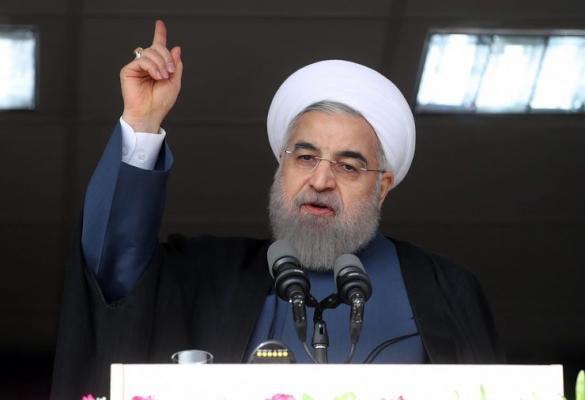After having fought multiple wars in Iraq and Syria directly, and ones in Yemen and Lebanon indirectly, it seems that the Iranian leadership has discovered the magic of military influence and its importance in imposing its foreign policy, both regionally and internationally. This is what has been indicated by recent statements made by Iranian officials. The most recent of these statements was made by the Chief of Staff for the Armed Forces of Iran Mohammad Bagheri.
He said: “We have relinquished our nuclear power and we are making up for this by building a naval power that will give us greater value. We will have a military fleet in the Sea of Oman and another in the Indian Ocean, and we will build naval bases on coasts or islands in Yemen and Syria. We will also develop our military intelligence capabilities through drones in our naval extensions”.
Although I do not believe that Iran possesses the military power for such a costly expansion, it is clear that Iran has taken two strategic decisions; to increase its foreign military capability and revive the Shah’s old dream to be the police force of the Gulf. Currently, Iran wants to become the police force of the area from the Indian Ocean to the Mediterranean Sea. This orientation will create more tension in our already troubled region and lead to parties resorting to using military power as a political tool.
The Iranian Chief of Staff’s statement does not correlate with his justification that the objective of the military naval project is to combat piracy in these seas because Iran’s maritime trade is very limited compared to other countries such as India, the Gulf, Egypt and other countries that use these naval corridors outside Gulf waters.
In addition to this, piracy does not exist in the Sea of Oman and in the Mediterranean. Whether this statement is intended to intimidate or reflect the new strategy that Iran is pursuing as an alternative to the nuclear project after it bowed to western pressure and abandoned it in exchange for the lifting of sanctions, the new Iranian way of thinking which followed the signing of the nuclear deal revolves around military superiority and not the opening up of the economy like the American administration thought. This is what the administration marketed when it listed the benefits of the nuclear deal.
Talk of an Iranian military base in the Mediterranean is an exaggeration and I rule out that European powers will allow such a presence in their waters, particularly the presence of a state whose activities they are suspicious of. I would also imagine that Israel would not allow this, and it recently sent back an Iranian ship loaded with Iranian weapons that tried to pass through Bab Al-Mandab. The Israeli navy has also pursued Iranian ships heading to Sudan in the past and bombed one of them.
In the case that Iran succeeded in re-establishing Bashar Al-Assad’s regime in Syria, it will no longer need to build military naval bases there because it would then be in control of the regime in Damascus as part of an alliance which will not be easy for Assad to get rid of.
Although Iran gave two reasons for its involvement in the war in Syria; to protect Shiite shrines and repay the Assad regime for standing by it in the war against Iraq in the eighties, these two reasons are not convincing in the calculations of political relations. Tehran considers controlling Syria a necessity to control Iraq so that it can secure its presence, influence and interests in this strategic Arab country.
Iran’s wide – ranging military operations in Iraq and Syria confirm that fighting wars has become Iran’s new policy and that strengthening its military capabilities is a key pillar of its foreign policy. Since breaking free from the western siege, becoming capable of taking part in international trade and using the dollar, Iran has been trying to become a dominating power by expanding geographically, on land and by sea. This may mean that we are facing a decade of a regional arms race and more military adventures in the region.
